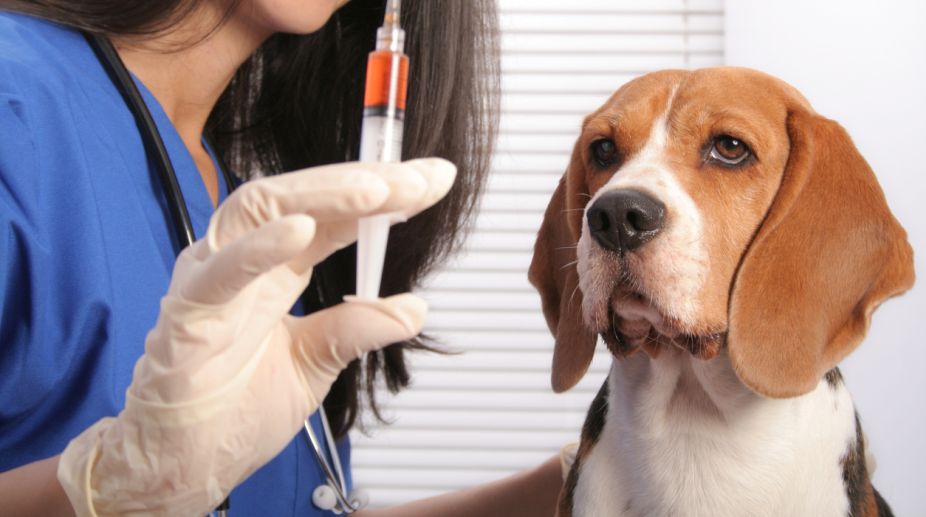In a breakthrough that can make the life saving rabies immunoglobulins affordable and available to poor patients bitten by rabid dogs, the World Health Organisation (WHO) has endorsed a low cost treatment protocol by a government doctor in Himachal Pradesh (HP).
The WHO has acknowledged the modified protocol by Dr Omesh Kumar Bharti, field epidemiologist with Himachal government, which brings down the cost of post exposure rabies prophylaxis (from over Rs 35,000 to Rs 350 per patient) in its latest update on rabies vaccines and immunoglobulins.
Advertisement
“It drastically reduces the doze of medicine, which is not only scant in supply, but is unaffordable for poor patients,” said Dr Bharti. Dr Bharti did the research at Intra Dermal Anti-Rabies Clinic and Research Centre of Deen Dayal Upadhyaya Hospital here with technical support from late Dr SN Madhusudana, Head of the WHO Collaborating Centre on Rabies Research at National Institute of Mental Health and Neurosciences Bengluru and Dr Henry Wilde, WHO consultant in Thailand.
The WHO update is based on the recommendations of its Strategic Advisory Group of Experts (SAGE) committee, which met in Geneva in October 2017 and referenced Dr Bharti’s research work in DDU with other two co-authors.
As per earlier WHO guidelines, a dog or monkey bite victim was administered a vaccine intradermally along with rabies immunoglobulins that was injected both in the wound and muscle. The rabies immunoglobulins were calculated as per the patient’s body weight, which was a costly proposition.
While the vaccine part almost remains the same, the new update by WHO involves injecting rabies immunoglobulins only in the wound. The rabies immunoglobulins neutralise the rabies virus in the wound within hours.
The omission of rabies immunoglobulins administration intramuscularly will drastically reduce the cost of treatment. Around 59,000 persons die of rabies globally every year, out of which 20,000 deaths are reported in India alone.
Meanwhile, Union Health and Family Welfare Minister, Jagat Prakash Nadda in a tweet termed it a ‘proud moment for India’. The minister congratulated Dr Bharti for the achievement.











